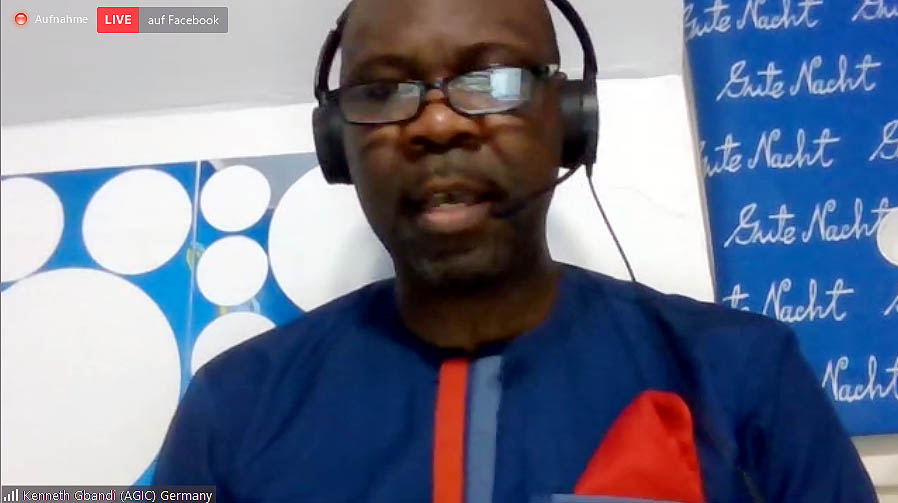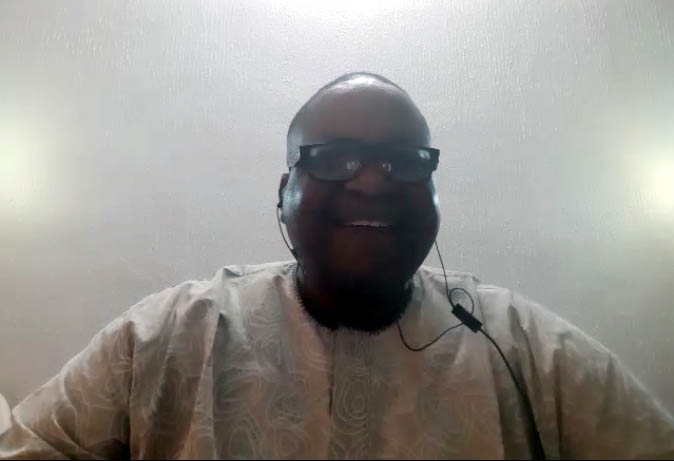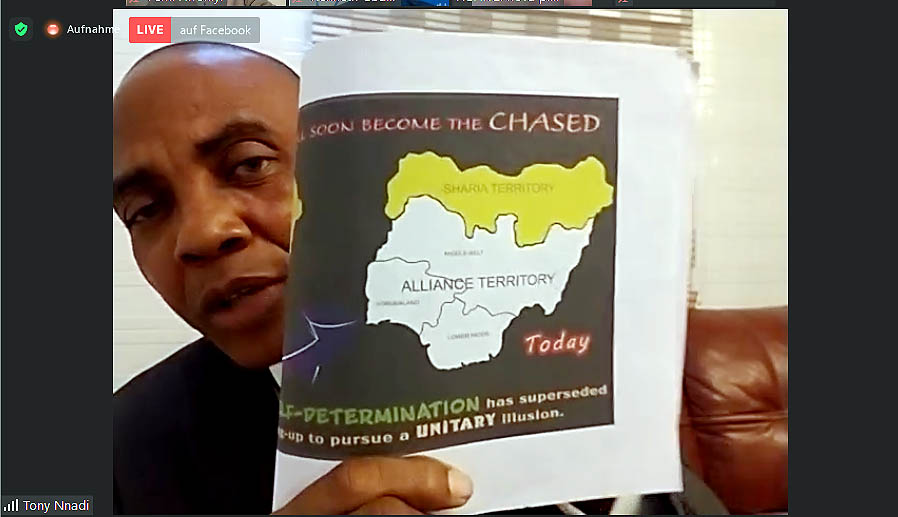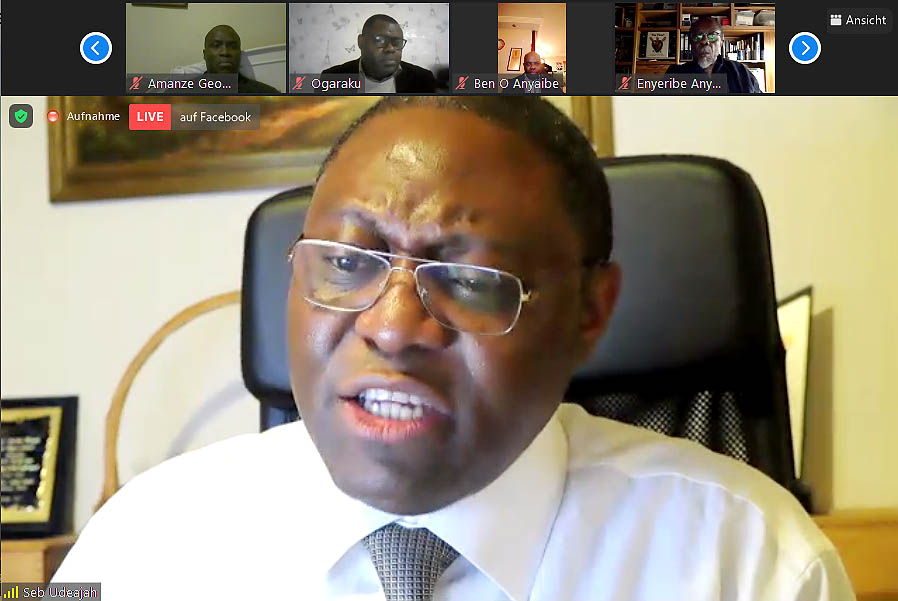Almost daily, citizens including school children are abducted for ransom in Nigeria. In the past two weeks alone, two high profile abductions of hundreds of school pupils have generated global media attention.
The murderous Boko Haram insurgency also continues to ravage Nigeria’s north-eastern region.
In the north west, bandits invade villages killing and maiming, and displacing the original inhabitants.
More than 3.2 million people are presently displaced in Nigeria as a result of the insecurity in the country, according to the UNHCR.
Moreover, inter-ethnic relations, especially between the Fulani pastoralists and many other national groups, have worsened due to the activities of herdsmen whose cattle destroy farms.
Nigerians living outside their homeland are justifiably worried about the situation which is why a coalition of the foreign chapters of Nigerian political parties organised a virtual conference on the security situation in their homeland on Saturday.

Opening the ‘Conference of all Diaspora Political Parties on the State of Security’, its chief convener, Hon. Kenneth Gbandi, said “it’s time to speak up and speak out”.
In his assessment, given the widespread incidents of killing and abduction and tensed inter-ethnic relations in the country, Nigeria faced the danger of a civil war.
“Whoever denies the danger of war would not be honest,” Gbandi, a Hamburg, Germany-based media and social entrepreneur and chairman of the African Democratic Congress-Diaspora Network (ADC-DN), added.
“The security situation in Nigeria is the worst since the end of the civil war [1970],” he said, revealing that 59 diaspora-based Nigerians had been killed or abducted while visiting their homeland in the past one year alone.
Gbandi, who is the immediate past chairman of the Nigerians in Diaspora Organisation Europe (NIDOE), said his party, the ADC, was genuinely concerned about the situation and called on all stakeholders to join forces to avert another civil war in the country.
Collins Nweke, a Councillor in the Belgian town of Ostende who moderated the conference, said the event was historic as it was the first time that diaspora-based Nigerians, putting their political differences aside, would put heads together to deliberate on how best to tackle an existential threat confronting their homeland.
Nweke, who is also a former chairman of NIDOE, said Nigeria was in a “near-civil war situation” and the country was looking to the diaspora to join the search for solutions.

Dr Alistair Soyode, founder of YES Nigeria, a political party, said it was sad that the situation had come “to this level”. He was however comforted by the confidence that Nigeria would be able to address the challenges.
Soyode, founder of BEN Television UK who is also a former chairman of NIDOE, called on Nigerians to unite to find sustainable solutions to the “draconian situation”.
“Let’s put aside ethnicity, religion and political affiliations and see what we can collectively do to salvage the country,” he added.
Soyode, who was a presidential candidate at the 2019 Nigerian elections, called on the government of President Muhammadu Buhari to assure the country that it was sincerely looking for a solution.
In his presentation, Col. Hassan Stan Labo (rtd), a retired Nigerian Army officer, said Nigeria was at the brink of civil war and “whatever we can do irrespective of our differences, we should do to save the nation”.
Labo identified the challenges facing the armed forces, including understaffing, lack of technological integration, shortage of vital equipment and inadequate training. He also bemoaned the proliferation of small arms in the country.
Among the solutions suggested by Col. Labo are the introduction of state and community policing, the mopping up of arms in circulation through incentives and the creation of a border protection force.
He also called for increased funding for the military and the establishment of a National Security Trust Fund, into which the organised private sector, public servants and endowed citizens should be asked to contribute.

Labo proposed a 5-pillar approach to reforming the security sector, consisting of increased funding, bolstered manpower, better equipment and training and improved conditions of service for the members of the armed forces.
The retired colonel identified the herdsmen problem as the most important which the country had to deal with as a matter of absolute urgency.
“Unfortunately, leadership has disappointed us,” he lamented.
“Leadership must avoid tribalism and convince Nigerians that it was acting in the best interest of all,” he concluded.
In his intervention, Chidi Nwaonu, a British Army reserve officer and security analyst, blamed lack of accountability in leadership for the security crisis in Nigeria.
“People take power and don’t know what to do with it,” he said, calling for a reform of the security sector to make it more efficient.
Nwaonu called for the deployment of soft power and demonstration of political fairness by the government to all Nigerians as a way to enlist the support of the people as it tackles the security challenges.
Israel-based Clement Mosindi, who is also a security consultant, said Nigeria was dealing with international terrorism and therefore needed international support.
“We have not handled the situation with the seriousness it deserves,” he added. “We should stop domesticating the problem, we should call for international support.”

Mosindi, who has lived in Israel for 30 years and is the author of Global War On Terror: The Nigerian Dimension, also faulted the government’s management of the crisis as it has failed to galvanise the whole population behind national efforts to tackle the situation.
“The time of political correctness is over!” he said. “It’s time to delineate the enemies of the state”.
Tony Nnadi, a lawyer and political rights activist, struck a totally different tone in his emotion-laden contribution.
“It’s not a question of law and order,” he said, blaming the security crisis in the country on what he described as “a campaign of landgrab”.
Nnadi, who is the Secretary-General of the Lower Niger Congress and the Co-Convener, Movement for New Nigeria, said the murderous banditry going on in the country was “a landgrab design cloaked in Jihad”.
The lawyer described the ever-changing explanations offered by government for insecurity in the country as a deceptive way to conceal the true intention of the marauding bandits who have driven away the original inhabitants of hundreds of communities in northern Nigeria, especially in Adamawa, Kaduna, Plateau and Zamfara states.
Nnadi was of the opinion that Nigeria had to address the constitutional grievances being expressed by agitating self-determination groups, such as Afenifere, Ohaneze, Middle Belt Forum, Niger-Delta nationalists etc.
“Our union is a disputed one,” he said, calling for a new constitutional arrangement as the only way out of the national crisis in Nigeria.
“The 1999 Constitution is the source of our misery,” Nnadi posited, calling on all political parties to support the struggle for a new constitution.
“The sovereignty dispute has to be resolved.”
Seb Udeajah, a Germany-based software engineer, in his submission, also blamed the constitution for Nigeria’s problem.
In his view, reforming the constitution would not be possible as the present system was skewed.
To resolve the crisis bedevilling the country, the constitution “has to be trashed”, he posited.
About 100 participants took part at the 3-hour virtual conference.
Femi Awoniyi
 THE AFRICAN COURIER. Reporting Africa and its Diaspora! The African Courier is an international magazine published in Germany to report on Africa and the Diaspora African experience. The first issue of the bimonthly magazine appeared on the newsstands on 15 February 1998. The African Courier is a communication forum for European-African political, economic and cultural exchanges, and a voice for Africa in Europe.
THE AFRICAN COURIER. Reporting Africa and its Diaspora! The African Courier is an international magazine published in Germany to report on Africa and the Diaspora African experience. The first issue of the bimonthly magazine appeared on the newsstands on 15 February 1998. The African Courier is a communication forum for European-African political, economic and cultural exchanges, and a voice for Africa in Europe.




























